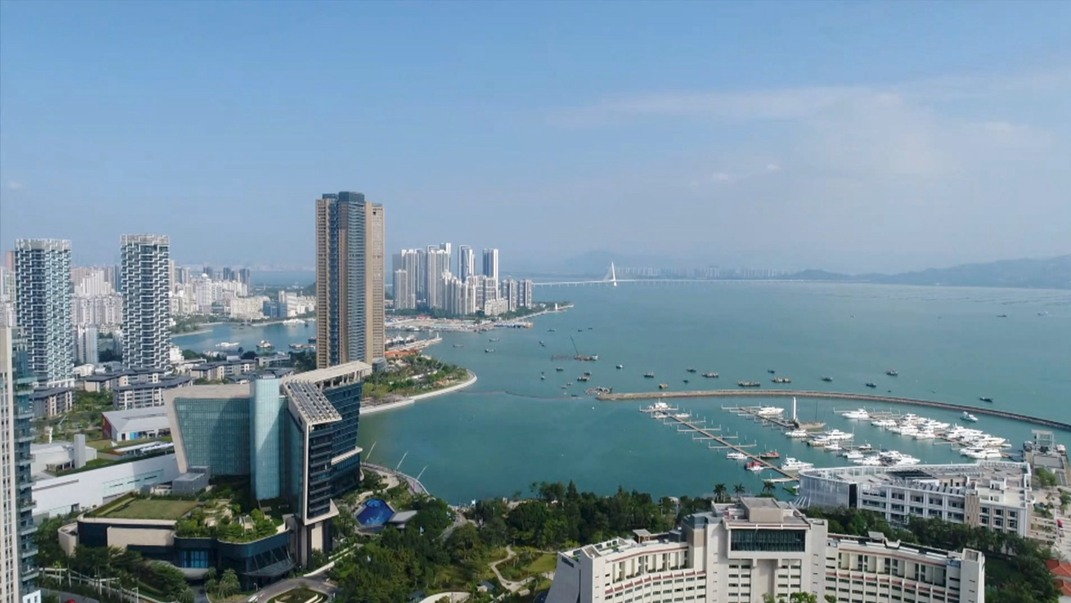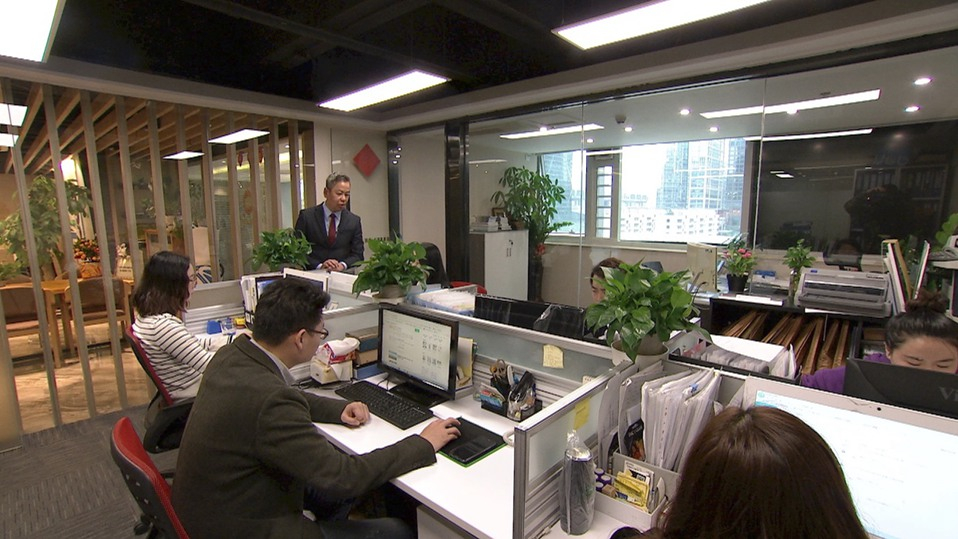
Biz Analysis
21:13, 19-Feb-2019
The Greater Bay Area promotes the movement of talent
Updated
21:41, 19-Feb-2019
He Weiwei and Liang Qipeng
02:19

The Guangdong-Hong Kong-Macao Greater Bay Area, is special because it's the only Bay Area in the world that covers two economic systems-the planned economy and market economy-and three customs territories: The Chinese mainland and the Hong Kong and Macao Special Administrative Regions (SARs).
So to break down the obstacles under different systems and customs territories is key to the success of the blueprint.
Take the workforce flow. There are a lot of Hong Kong residents that come to work in the mainland. Rocky Yu is one of them.
Yu came to Shenzhen City in Guangdong Province in 2003. “The biggest attraction of the mainland is its 1.4 billion people,” Yu told CGTN, “China has a huge middle-class population, it has strong consumption power.”

Rocky Yu in his office in Shenzhen City, south China's Guangdong Province. /CGTN Photo
Rocky Yu in his office in Shenzhen City, south China's Guangdong Province. /CGTN Photo
Yu runs a business service center in Shenzhen, providing consulting services. He's helped more than 200 Hong Kong companies in the mainland. When asked “what are the common problems these Hong Kong firms are facing”, Yu said, “The taxation system and business registration procedures, as well as other requirements here in the mainland are more complicated than Hong Kong. It takes some time for new companies to figure out all these things.”
Yu also admits that there have already been preferential policies for Hong Kong citizens working in the mainland. “For example, we no longer need a Temporary Residence Permit or a work permit, we can stay in the mainland without a time limit.”
And more is on the way. The newest blueprint of the Bay Area encourages Hong Kong and Macao residents to study in the mainland schools or work in state-owned enterprises or even government agencies.
While such workforce flow has become a trend, some are concerned that the flow in the other direction – from the mainland to Hong Kong or Macao – is not that easy and strong, therefore causing an imbalance. But experts say it's unnecessary to worry about the so-called “imbalance of workforce flow”, because the mainland is a huge market, while Hong Kong and Macao are limited but much more developed than the mainland. So it's natural that there will be more people coming from Hong Kong and Macao into the mainland, than vice-versa, to meet market demand.
(Lai Shiwen also contributed to the story.)

SITEMAP
Copyright © 2018 CGTN. Beijing ICP prepared NO.16065310-3
Copyright © 2018 CGTN. Beijing ICP prepared NO.16065310-3